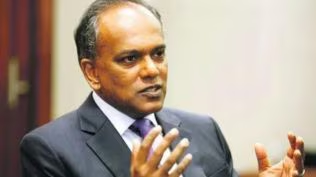Tougher security measures are causing upset at Guantanamo prison
In a protest over tougher security measures at the Guantanamo Bay prison, a lawyer for the man accused of plotting the USS Cole bombing asked a judge Tuesday to have the prisoner unshackled during legal meetings, invoking his torture by the CIA.
Guards let the man, Abd al-Rahim al-Nashiri, meet his lawyers more than 150 times while he was unshackled from 2019 until late last year, said Lt Cmdr Alaric Piette of the Navy, the defense lawyer. Now the change has re-traumatized the prisoner and impeded his lawyers’ ability to communicate and work with him.

“We are asking to be in the room with him unshackled as we were for four-and-a-half years,” Piette said. “To do otherwise would be to exacerbate the torture that Nashiri went through at the hands of the government.”
Through their lawyers, some of the 30 prisoners at Guantánamo Bay have complained that the military police officers who guard them recently resumed more stringent practices that had been abandoned over the years.
Details have been scant because some of the security measures are probably classified. When the new prison commander, Col Steven Kane, defended his practices in testimony at the war court Monday, the judge in the case, Col Matthew Fitzgerald, closed the court to the defendant and the public.
In court Tuesday, a prosecutor, Capt Kyle Lanning, did not explain the reason for the renewed policy of shackling prisoners during legal meetings but urged the judge to defer to the prison commander.
Lanning cited a 2014 federal appeals court ruling that permitted Guantánamo guards to routinely use their hands to search the prisoners’ genitals before legal meetings, a practice lawyers said effectively ended the meetings. The prison has since acquired scanning equipment for less intrusive searches.
Fitzgerald, however, noted Tuesday that the military judge in the September 11 case had recently ordered the prison to unshackle those defendants during their legal meetings at the war court compound. He invoked the “well-protected constitutional right of effective assistance of counsel” and said he was inclined to grant the request in the Cole case, Guantánamo’s other death penalty prosecution.
He added that Kane testified during the closed session that he was obeying the order in the September 11 case.
Seventeen sailors were killed in the bombing of the US Navy destroyer off Yemen on October 12, 2000.
The shackling question is the first torture-related issue to confront the new Cole case judge, Fitzgerald. Last year, the previous judge threw out confessions Nashiri made at Guantánamo in 2007 as tainted by the prisoner’s brutal treatment in the CIA’s overseas prison network. He was held at the agency’s black sites from 2002 to 2006.
Nashiri was waterboarded by psychologists working as contractors for the CIA, held naked and shackled in painful “stress positions,” and subjected to threats and violence, including rectal abuse, by agency staff members. A court-ordered military medical assessment found that he suffers from complex post-traumatic stress disorder, depression and other conditions as a result of the abuse.
Piette, who has represented Nashiri longer than any other member of his current defense team, said the resumption of shackling had harmed the prisoner’s ability to communicate with his lawyers because of a “cognitive change” caused by his PTSD. To effectively represent him, Piette said, Nashiri “has to trust his American lawyers, American lawyers dressed like me.”
While still murky, the problems at the prison first surfaced this year when all four defendants in the September 11 case, including Khalid Sheikh Mohammed, who is accused of being the mastermind of the attacks, chose not to come to weeks of pretrial hearings. Although they have the right to voluntarily waive their attendance before the trial begins, they were essentially engaging in a boycott.
In court last month, Denny LeBoeuf, a lawyer for Mohammed, protested to the judge, Col Matthew McCall, that the prisoners had experienced “a level of upset and uproar from conditions at the camp and the transportation and meeting problems that is unprecedented in my experience.” LeBoeuf has been on the case since 2008.
Disclaimer: The copyright of this article belongs to the original author. Reposting this article is solely for the purpose of information dissemination and does not constitute any investment advice. If there is any infringement, please contact us immediately. We will make corrections or deletions as necessary. Thank you.





